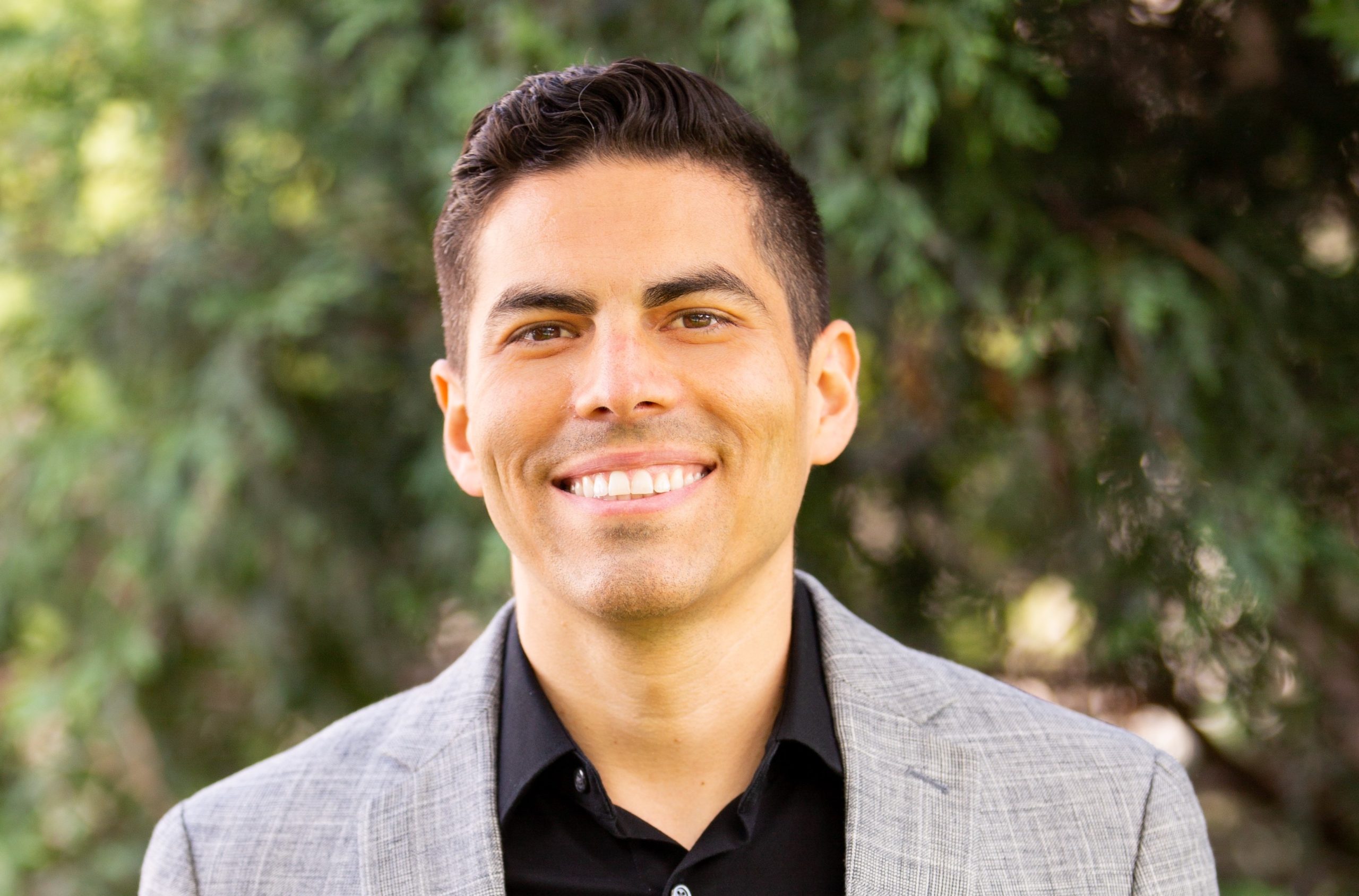To learn more about the types of training and consultation that BTECH offers, visit our Training Catalog here.
Interested in a training that is sold out? Please join our Waiting List so we can contact you as we schedule future events.

- This event has passed.
Strengthening Your Practice of DBT
Live, Remote, Instructor-led
October 10 – October 12, 2022
Trainers: Gwen Abney-Cunningham, LMSW, Tony DuBose, PsyD, Vibh Forsythe Cox, PhD, Melanie Harned, PhD, ABPP, André Ivanoff, PhD, Kathryn Korslund, PhD, ABPP, Jill Rathus, PhD, Ronda Oswalt Reitz, PhD, Marcus Rodriguez, PhD, Nicholas L. Salsman, Ph.D., ABPP, Amy Wagner, PhD, Suzanne Witterholt, MD
Training Description
Many persons who complete comprehensive training in DBT (Foundational and Intensive Trainings) often experience great enthusiasm, a sense of learning very important information about treating persons with complex problems, being overwhelmed by the amount of information, and stymied in their attempts to apply what is learned. Many veterans of comprehensive DBT training find that facility with application of the treatment develops over time. This course is designed as a “next steps” training, specifically for persons who are interested in strengthening the skills they acquired in their comprehensive DBT trainings and subsequent clinical work to become more proficient in applying the treatment.
This training draws on the expertise of multiple trainers to address specific therapist skills identified as needing more development after comprehensive training. It will provide a rare opportunity for participants to learn from an extraordinary group of trainers representing a combined 250+ years of experience that spans some of the most important issues and adaptations of DBT. Those among the group have made significant contributions to adaptations and refinement of DBT. The specific topics include:
Getting from Goals to Targets and From Targets to Solution | Anthony DuBose, PsyD
One of the principal assumptions in DBT is that the most compassionate thing therapists can do is to help patients get closer to their own ultimate goals in life. Not only is this aspirational, but it serves the important pragmatic purpose of linking what may sometimes be the very difficult work of treatment to the goals of the client. This particular segment sets the stage for a day focused on movement from goals to targets and identifying a clear plan for interventions based on analysis of treatment targets.
- Identify the overarching goals of patients such that they experience life as worth living.
- Identify the values that inform goals.
- Define goals in a manner that allows for measurement of attainment.
- Identify specific targets that need to be addressed to attain goals.
- Identify problem behaviors that must be eliminated or decreased in order for patients to attain goals.
- Identify behaviors that are needed for patients to attain goals.
Assessing Controlling Variables | Amy Wagner, PhD
It is often said in DBT that most treatment failures are related to errors in assessment. Avoiding errors in assessment requires focusing on the most pertinent behaviors at specific points in treatment. It then requires careful specification and definition of the behavior, and clear understanding of cause and effect in the sequence leading to and following the problem that occurred. The chain analyses in DBT sets the stage for understanding behavior and intervening with increased precision and efficiency. This segment will build on knowledge acquired in DBT Foundational training to develop more precision in understanding the links in a chain, and to clarify how the type of link, and its role as a reinforcer or punisher leads to precision in identification of interventions.
- Identify the most pertinent behavior for analysis at specific points in treatment.
- Obtain a behavioral definition of the identified problem behavior.
- Identify the most pertinent controlling variables in a chain.
- Determine the most critical points of intervention in a chain analysis.
- Identify the most effective change procedures based on problems identified in a chain analysis.
Solution Analysis | Gwen Abney-Cunningham, LMSW
The very purpose of a chain analysis is to identify solutions to specific problems that are identified in the links of the chain. In our endeavor to solve problems, it is important that we are both effective and efficient in the interventions we suggest and help patients employ. This segment looks more closely at the point where one moves from assessment of problem behaviors to determining interventions. It will rely on practice applying what has been conceptualized in the previous segment.
-
- Identify the steps used in DBT problem solving.
- Engage in collaborative development of solutions.
- Employ behavioral rehearsal in the implementation of solutions.
Considerations Related to Racism and Culture in DBT Skills Training | Vibh Forsythe Cox, PhD
This segment will provide a brief overview of factors to consider related to culture and racism when discussing or teaching DBT skills. DBT skills are taught in order provide clients with the tools to navigate their own unique contexts in ways that help them reach their goals. For some clients, effective navigation of context is inextricably tied to race or culture. This training segment is being offered with the goal of supporting effective skills training, individual therapy, and participation on a diverse consultation team by helping providers understand the impacts of culture and racism and providing tools for helping to determine the most effective ways to apply skills with attention to those factors.
Learning Objectives:
-
- Describe the rationale for cultural humility in skills training.
- Ask assessment questions about the impact of a client’s culture on their experience learning and using DBT skills.
- Give specific examples of the impact of racism on skill selection and application.
- Give examples of using DBT skills to address race-based discrimination.
Bringing Precision to Exposure Procedures | Melanie Harned, PhD, ABPP
Exposure procedures are a core problem-solving strategy in Dialectical Behavior Therapy (DBT) that are used when intense emotion interferes with skillful behavior. Exposure can be informal or formal and is used to reduce the intensity of any unjustified emotion. Although exposure is highly effective, it is the least used strategy in DBT. This segment will focus on describing the rationale for exposure as well as how to optimize the effectiveness of this procedure. Emphasis will be placed on how to conduct informal exposure during DBT sessions to reduce emotional avoidance and facilitate new learning.
-
- Orient clients to the rationale for exposure.
- Define informal and formal exposure.
- Conduct informal exposure.
Striving Toward DBT adherence in Therapy Sessions | Kathryn Korslund, PhD, ABPP
Therapist adherence to Dialectical Behavior Therapy (DBT) treatment delivery is a critical component of implementation success and a key element of quality assurance. Despite expert training, emerging data suggests that DBT is often delivered non-adherently in routine practice settings. This training segment will briefly highlight key research findings on therapist adherence to DBT in routine practice, describe common challenges to adherent treatment delivery, and provide recommendations to facilitate adherent delivery of DBT in individual and group DBT therapy sessions.
Learning Objectives:
-
- Describe key findings of therapist adherence to DBT in routine practice settings.
- Discuss common challenges to adherence delivery of DBT in routine practice.
- Implement strategies to facilitate adherent deliver of DBT in individual and group DBT sessions.
Measuring Outcomes in Clinical Practice | Ronda Oswalt Reitz, PhD
In today’s fast-paced and high-stakes behavioral health treatment environment, it can seem overwhelming to plan, collect, analyze, and present outcome data. This segment will take an honest look at the barriers to collecting outcome data and will pose some solutions.
Learning Objectives:
-
- List three central purposes of outcome data
- Identify major barriers and solutions to collecting outcome data
- Explore and identify the right level of data for your organizational and clinical purposes
- Identify an array of specific methods and instruments used to collect outcome data
- Create a plan for long-term outcome measurement in your practice or organization.
Adopt or Adapt: The Question Continues | André Ivanoff, PhD
Since the advent of evidence-based practices, the question of whether to adopt the practice as it was originally designed or to adapt it to try to meet the needs of different settings and populations has been of high concern. This is true in psychotherapy treatment models, as well as in psychosocial and public health interventions. Adopting is identifying and implementing the entire set of essential conceptual and procedural components of the treatment model to the highest degree of fidelity possible as they were described in the original treatment manual. Adapting is modifying some or all of the essential conceptual and procedural components of the treatment model. Traditionally, most “adaptations” of DBT described in the literature do not rise to the level of this definition and do not change essential components of the treatment. When they do it raises the question of whether they should be described as “DBT” The differences between these two in DBT are clarified and examples of individual adoptions and adaptations as well as programmatic adoptions and adaptations are reviewed and discussed.
Learning Objectives:
-
-
- Identify the essential conceptual and procedural components of DBT.
- Define the difference between adoption and adaptation of evidence-based practices.
- Describe the principles of adaptation according to current evidence-based best practices from health and public health models
-
Principle Adaptations for SUD | Nicholas L. Salsman, PhD, ABPP
Dialectical Behavior Therapy for individuals with substance use disorders (DBT-SUD) offers ways to augment DBT in a manner that can enhance reduction of problematic substance use. DBT-SUD anchors its approach to the treatment of SUDs in dialectical abstinence. There are eight attachment strategies utilized in DBT-SUD to enhance connection with clients. Further, there are seven skills taught in DBT-SUD for when the crisis is addiction. DBT-SUD also incorporates ancillary treatments and assessments. This segment will review these principal adaptations.
Learning Objectives:
-
- Describe dialectical abstinence.
- Identify the eight attachment strategies utilized in DBT-SUD.
- Identify the seven skills taught in DBT-SUD for when the crisis is addiction.
- Identify common ancillary treatments and assessments utilized in DBT-SUD.
DBT for Adolescents and their Caregivers | Jill Rathus, PhD
Many persons who work with adolescents and complete Intensive or Foundational training raise questions specific to the application of DBT with adolescents and their caregivers. In this segment, some of the more frequently asked questions related to case conceptualization and family involvement will be addressed. These questions may take the form of how to incorporate conceptualization of the adolescent and family dialectical dilemmas into treatment and when and how are family members included in DBT sessions with adolescents, beyond skills training to increase treatment effectiveness. Dr. Rathus will also review the most current research on DBT with adolescents.
Learning Objectives:
-
- Detail the ways in which caregivers are included in DBT with adolescents to enhance its impact for teens.
- Conceptualize the manner in which dialectical dilemmas manifest for adolescents and their families.
- Describe the decision-making process for how and when to include family members in DBT sessions with adolescents.
DBT Parent Coaching and Family Therapy | Marcus Rodriguez, PhD
This segment will cover challenges and strategies related to the application of DBT with adolescents, young adults, and their parents. We will focus on strategies for (1) orienting parents and families to their role in treatment, (2) getting parent’s commitment to stop trying to change their adolescent’s mind in order to change their behavior, (3) enhancing parent’s willingness to increase acceptance and allow natural consequences, (4) skillful use of limit setting (and punishments), reinforcement, and validation to shape their adolescent’s behavior, and (5) conducting family sessions that lead to reduced dysfunction and improved communication and collaborative problem solving.
Learning Objectives:
-
- Explain how the biosocial model accounts for the causation and maintenance of emotion dysregulation
- Describe to parents how to use DBT’s contingency procedures to help shape their adolescent’s behavior.
- Identify strategies for enhancing validation and reducing dysfunction in family therapy sessions.
Coaching in the Milieu | Suzanne Witterholt, MD
Milieu settings in which DBT is practiced offer a wealth of opportunities to help a person change in ways that set them up for a successful return to the community, launching them on their journey of recovery. The milieu itself can function as a capability building, motivating and generalization environment. When structured to maximize validation and reinforce functional behaviors, it can be a “jump start” for many people struggling with BPD and related conditions. For this segment, we will focus on how to coach in the milieu. The “on the fly”, “24/7”, opportunities to support the people in our care to move toward a life they experience as worth living are ones we do not want to waste. “Coaching in the milieu” is a primer to the use of DBT principles and strategies brought to people in the moment, when they need it.
Learning Objectives:
-
- Provide the definition of coaching.
- Describe the function of coaching in the milieu.
- Identify the targets for a brief, coaching encounter in the milieu.
- Identify the strategies used for a brief, coaching encounter in a milieu.
This live remote instructor-led program consists of twelve 75-minute modules delivered online for a total of 18 instructor-led hours. As is the case with all BTECH trainings, each day will begin with mindfulness and a review of the previous day, and each day will end with daily summaries. Learning will occur via didactic information, treatment demonstrations, and group practice. Participants are expected to have completed comprehensive DBT training, be currently engaged in the provision of DBT services, and want to strengthen their practice of DBT. As such, the training builds on an expectation that participants are well-versed in the content of standard DBT. Specifically, participants should complete Dialectical Behavior Therapy Foundational Training or Dialectical Behavior Therapy Intensive Training before participating in this training.
We will be offering more trainings like this in the future. Please enter your details below to receive updates when we add new events.
Training Waiting List
"*" indicates required fields
Schedule
[table id=28 /]
[table id=29 /]
[table id=30 /]
Trainers
Gwen Abney-Cunningham, LMSW

 Kalamazoo, MI (United States)
Gwen Abney-Cunningham, LMSW, is currently a fulltime Behavioral Tech consultant and trainer. Prior to coming to Behavioral Tech full time, she was employed at a community mental health agency for 32 years, in many roles, including; DBT Services Supervisor, Outpatient Services Director, and most recently as Evidenced Based Treatment Director. Gwen received her bachelor’s degree from Hope College and her MSW from Grand Valley State University. She has 30 plus years of professional experience and is a member of one of the first teams in the U.S. to apply DBT within an ACT program. Gwen is intensively trained in DBT and an experienced workshop leader at state, national, and international conferences. Gwen continues to work as a DBT therapist because it is effective and the hope it brings to clients and their families. As a BTECH Trainer and consultant, she is also able to assist many mental health providers in learning the treatment to assist in helping many individuals.
Gwen’s experience in DBT includes individual and skills training for adults, adolescents and families and providing DBT supervision to clinicians. In addition, she has assisted in the development and implementation of DBT on ACT teams and in outpatient settings. Gwen has been involved with the large-scale implementations of DBT in Michigan for Community Mental Health settings. She has been a Behavioral Tech trainer for 20 plus years. Gwen has also served on the Behavioral Tech Trainer Advisory Committee and the Behavioral Tech Implementation Science Workgroup.
Kalamazoo, MI (United States)
Gwen Abney-Cunningham, LMSW, is currently a fulltime Behavioral Tech consultant and trainer. Prior to coming to Behavioral Tech full time, she was employed at a community mental health agency for 32 years, in many roles, including; DBT Services Supervisor, Outpatient Services Director, and most recently as Evidenced Based Treatment Director. Gwen received her bachelor’s degree from Hope College and her MSW from Grand Valley State University. She has 30 plus years of professional experience and is a member of one of the first teams in the U.S. to apply DBT within an ACT program. Gwen is intensively trained in DBT and an experienced workshop leader at state, national, and international conferences. Gwen continues to work as a DBT therapist because it is effective and the hope it brings to clients and their families. As a BTECH Trainer and consultant, she is also able to assist many mental health providers in learning the treatment to assist in helping many individuals.
Gwen’s experience in DBT includes individual and skills training for adults, adolescents and families and providing DBT supervision to clinicians. In addition, she has assisted in the development and implementation of DBT on ACT teams and in outpatient settings. Gwen has been involved with the large-scale implementations of DBT in Michigan for Community Mental Health settings. She has been a Behavioral Tech trainer for 20 plus years. Gwen has also served on the Behavioral Tech Trainer Advisory Committee and the Behavioral Tech Implementation Science Workgroup.
Tony DuBose, PsyD

 Seattle, WA
Anthony P. DuBose, PsyD, Vice-president for Institute Services at Behavioral Tech Institute, the organization founded by DBT Treatment Developer, Dr. Marsha Linehan. Dr. DuBose has led a team of some of the world's foremost experts in Dialectical Behavior Therapy (DBT) since 2011. He has served a key role in the development and refinement of several large-scale DBT training models that have been translated into multiple languages. He has trained and consulted with health care providers world-wide regarding the treatment of borderline personality disorder, substance use disorders, and suicidal and self-injurious behaviors in adults and adolescents. He has been involved in large-scale systemwide DBT implementation projects in multiple countries and several US states. He is a member of the International Dissemination and the Training Committees of the World Dialectical Behavior Therapy Association (WDBTA), formed in 2021, and served on the WDBTA initial Board of Directors as its Treasurer. He has been licensed as a psychologist in the State of Washington since 1998 and is certified by the DBT - Linehan Board of Certification (DBT-LBC). He lives in Seattle, WA in the United States.
Dr. DuBose received a doctoral degree in clinical psychology from Pacific University of Oregon. He completed his predoctoral psychology internship at Western State Hospital in Lakewood, WA, and his residency requirements for psychology licensure as a postdoctoral fellow in clinical child psychology through the University of Washington's Department of Psychiatry and Behavioral Sciences. Before training as a psychologist, he completed a Master of Science degree in counseling from Loyola University of New Orleans and worked as a family therapist upon completion of that degree. His interest in suicidal and self-injurious behaviors developed when working with adolescents at high risk for suicide at the Child Study and Treatment Center, the state psychiatric hospital for children in Washington, where he served as director of the older adolescent program from 1997 to 2001. He is a Founding Member, and served as the first President & CEO, of the Evidence Based Treatment Centers of Seattle, PLLC. He held appointments on the clinical faculty in the University of Washington’s Department of Psychiatry and Behavioral Sciences and Department of Psychology from 1998 - 2012. He collaborated with Marsha Linehan, Ph.D., ABPP, and other researchers on the study of DBT, particularly related to its dissemination and implementation.
Seattle, WA
Anthony P. DuBose, PsyD, Vice-president for Institute Services at Behavioral Tech Institute, the organization founded by DBT Treatment Developer, Dr. Marsha Linehan. Dr. DuBose has led a team of some of the world's foremost experts in Dialectical Behavior Therapy (DBT) since 2011. He has served a key role in the development and refinement of several large-scale DBT training models that have been translated into multiple languages. He has trained and consulted with health care providers world-wide regarding the treatment of borderline personality disorder, substance use disorders, and suicidal and self-injurious behaviors in adults and adolescents. He has been involved in large-scale systemwide DBT implementation projects in multiple countries and several US states. He is a member of the International Dissemination and the Training Committees of the World Dialectical Behavior Therapy Association (WDBTA), formed in 2021, and served on the WDBTA initial Board of Directors as its Treasurer. He has been licensed as a psychologist in the State of Washington since 1998 and is certified by the DBT - Linehan Board of Certification (DBT-LBC). He lives in Seattle, WA in the United States.
Dr. DuBose received a doctoral degree in clinical psychology from Pacific University of Oregon. He completed his predoctoral psychology internship at Western State Hospital in Lakewood, WA, and his residency requirements for psychology licensure as a postdoctoral fellow in clinical child psychology through the University of Washington's Department of Psychiatry and Behavioral Sciences. Before training as a psychologist, he completed a Master of Science degree in counseling from Loyola University of New Orleans and worked as a family therapist upon completion of that degree. His interest in suicidal and self-injurious behaviors developed when working with adolescents at high risk for suicide at the Child Study and Treatment Center, the state psychiatric hospital for children in Washington, where he served as director of the older adolescent program from 1997 to 2001. He is a Founding Member, and served as the first President & CEO, of the Evidence Based Treatment Centers of Seattle, PLLC. He held appointments on the clinical faculty in the University of Washington’s Department of Psychiatry and Behavioral Sciences and Department of Psychology from 1998 - 2012. He collaborated with Marsha Linehan, Ph.D., ABPP, and other researchers on the study of DBT, particularly related to its dissemination and implementation.
Vibh Forsythe Cox, PhD

 Seattle, WA (United States)
Vibh Forsythe Cox, PhD, is a Training and Development specialist for Behavioral Tech, LLC (BTECH). She is part of the team that creates content for BTECH’s training offerings. Dr. Forsythe Cox is also a Trainer and consultant for Behavioral Tech. In that role, she provides consultation for DBT teams, specializing in newly forming DBT teams. Dr. Forsythe Cox is a licensed Psychologist in Washington state and works as a therapist at Cadence Child and Adolescent Therapy, a DBT-Linehan Board certified DBT program in Kirkland, Washington. There, she provides DBT and other evidence-based treatments for teens and adults. Dr. Forsythe Cox is also the training advisor for the Post-Doctoral Fellowship program at Cadence and provides group and individual supervision to mental health professionals preparing for licensure. Dr. Forsythe Cox has experience providing DBT in a variety of settings, including university-based research, inpatient and outpatient hospitals, forensics, and private practice settings. She is a Clinical Instructor in the Department of Psychology at the University of Washington, where she has provided individual and group supervision to doctoral students in the Behavioral Research and Therapy Clinics (BRTC).
Seattle, WA (United States)
Vibh Forsythe Cox, PhD, is a Training and Development specialist for Behavioral Tech, LLC (BTECH). She is part of the team that creates content for BTECH’s training offerings. Dr. Forsythe Cox is also a Trainer and consultant for Behavioral Tech. In that role, she provides consultation for DBT teams, specializing in newly forming DBT teams. Dr. Forsythe Cox is a licensed Psychologist in Washington state and works as a therapist at Cadence Child and Adolescent Therapy, a DBT-Linehan Board certified DBT program in Kirkland, Washington. There, she provides DBT and other evidence-based treatments for teens and adults. Dr. Forsythe Cox is also the training advisor for the Post-Doctoral Fellowship program at Cadence and provides group and individual supervision to mental health professionals preparing for licensure. Dr. Forsythe Cox has experience providing DBT in a variety of settings, including university-based research, inpatient and outpatient hospitals, forensics, and private practice settings. She is a Clinical Instructor in the Department of Psychology at the University of Washington, where she has provided individual and group supervision to doctoral students in the Behavioral Research and Therapy Clinics (BRTC).
Melanie Harned, PhD, ABPP
 Seattle, WA (United States)
Seattle, WA (United States)
 Melanie S. Harned, Ph.D., ABPP, is a Psychologist and Coordinator of the DBT Program at the VA Puget Sound Health Care System and an Associate Professor in the Department of Psychiatry and Behavioral Science and Adjunct Associate Professor in the Department of Psychology at the University of Washington. Dr. Harned has previously worked as the Research Director of Dr. Marsha Linehan’s Behavioral Research and Therapy Clinics at the University of Washington (2006-2018), Director of Research and Development for Behavioral Tech, LLC (2014-2017), and Director of Behavioral Tech Research, Inc. (2013-2016). Dr. Harned’s research focuses on the development and evaluation of a protocol to treat PTSD during DBT as well as methods of disseminating and implementing this and other evidence-based treatments into clinical practice. She regularly provides training and consultation nationally and internationally in DBT and DBT PE. She has published numerous articles and book chapters and is licensed as a psychologist in the state of Washington.
Melanie S. Harned, Ph.D., ABPP, is a Psychologist and Coordinator of the DBT Program at the VA Puget Sound Health Care System and an Associate Professor in the Department of Psychiatry and Behavioral Science and Adjunct Associate Professor in the Department of Psychology at the University of Washington. Dr. Harned has previously worked as the Research Director of Dr. Marsha Linehan’s Behavioral Research and Therapy Clinics at the University of Washington (2006-2018), Director of Research and Development for Behavioral Tech, LLC (2014-2017), and Director of Behavioral Tech Research, Inc. (2013-2016). Dr. Harned’s research focuses on the development and evaluation of a protocol to treat PTSD during DBT as well as methods of disseminating and implementing this and other evidence-based treatments into clinical practice. She regularly provides training and consultation nationally and internationally in DBT and DBT PE. She has published numerous articles and book chapters and is licensed as a psychologist in the state of Washington.
André Ivanoff, PhD
 New York, NY (United States)
New York, NY (United States)
 André Ivanoff, Ph.D., is Professor at Columbia University in the City of New York where she directs the Dialectical Behavior Therapy (DBT) Training Program & Lab and teaches Advanced Clinical Practice in the School of Social Work. Since 2011 she has served as the Chair of the Board of Directors of the nonprofit Linehan Institute, now known as Behavioral Tech Institute. The Institute’s mission is the dissemination and implementation of DBT. She also serves as the President of Behavioral Tech, the training company founded by Marsha Linehan. She also serves on the Board of the DBT- Linehan Board of Certification. She is former Chair of the Columbia University Social & Behavioral Sciences Institutional Review Board. Her research and clinical interests include the international implementation of DBT in new geographies & cultures, the training of DBT in academic and post-graduate settings across mental health disciplines, and the application of DBT to the problems of those involved in the criminal justice system. She has authored over 90 publications on suicidal behaviors, DBT, and behavior change methods, and trains internationally and nationally with outpatient, inpatient, residential and correctional/forensic systems implementing DBT.
André Ivanoff, Ph.D., is Professor at Columbia University in the City of New York where she directs the Dialectical Behavior Therapy (DBT) Training Program & Lab and teaches Advanced Clinical Practice in the School of Social Work. Since 2011 she has served as the Chair of the Board of Directors of the nonprofit Linehan Institute, now known as Behavioral Tech Institute. The Institute’s mission is the dissemination and implementation of DBT. She also serves as the President of Behavioral Tech, the training company founded by Marsha Linehan. She also serves on the Board of the DBT- Linehan Board of Certification. She is former Chair of the Columbia University Social & Behavioral Sciences Institutional Review Board. Her research and clinical interests include the international implementation of DBT in new geographies & cultures, the training of DBT in academic and post-graduate settings across mental health disciplines, and the application of DBT to the problems of those involved in the criminal justice system. She has authored over 90 publications on suicidal behaviors, DBT, and behavior change methods, and trains internationally and nationally with outpatient, inpatient, residential and correctional/forensic systems implementing DBT.
Kathryn Korslund, PhD, ABPP

 Kathryn E. Korslund, Ph.D., ABPP, is the Clinical Director of THIRA Health, a DBT based partial hospital and intensive outpatient program in Bellevue, WA and a clinical instructor in the Department of Psychology at the University of Washington. Dr. Korslund served as the Associate Director of Dr. Marsha Linehan’s Behavioral Research and Therapy Clinics from 2003-2017 and was a co-investigator with Dr. Linehan studying the application of DBT to problems of adult and adolescent suicidal behavior and substance dependence and with Dr. Melanie Harned in her work developing and evaluating a protocol to treat PTSD during DBT. Dr. Korslund is the co-developer of the University of Washington DBT Adherence Coding Scale and oversees DBT fidelity monitoring and coder training internationally. Dr. Korslund has conducted DBT training and consultation for professionals and mental health systems throughout the United States and Canada as well as in the UK, Europe, Australia and Asia. She is a licensed psychologist in the state of WA and holds certifications by the American Board of Professional Psychology, the DBT-Linehan Board of Certification, and the Center for the Treatment and Study of Anxiety.
Kathryn E. Korslund, Ph.D., ABPP, is the Clinical Director of THIRA Health, a DBT based partial hospital and intensive outpatient program in Bellevue, WA and a clinical instructor in the Department of Psychology at the University of Washington. Dr. Korslund served as the Associate Director of Dr. Marsha Linehan’s Behavioral Research and Therapy Clinics from 2003-2017 and was a co-investigator with Dr. Linehan studying the application of DBT to problems of adult and adolescent suicidal behavior and substance dependence and with Dr. Melanie Harned in her work developing and evaluating a protocol to treat PTSD during DBT. Dr. Korslund is the co-developer of the University of Washington DBT Adherence Coding Scale and oversees DBT fidelity monitoring and coder training internationally. Dr. Korslund has conducted DBT training and consultation for professionals and mental health systems throughout the United States and Canada as well as in the UK, Europe, Australia and Asia. She is a licensed psychologist in the state of WA and holds certifications by the American Board of Professional Psychology, the DBT-Linehan Board of Certification, and the Center for the Treatment and Study of Anxiety.
Jill Rathus, PhD
 Brookville, NY (United States)
Brookville, NY (United States)
 Jill Rathus, PhD, (PhD Stony Brook, BA Cornell), is Professor of Psychology at Long Island University/CW Post Campus in Brookville, New York where she directs the DBT Clinical Research Training Program. She is also Co-Founder and Co-Director of Cognitive Behavioral Associates in Great Neck, New York, where she runs the Adolescent DBT program. Dr. Rathus' has published six books and dozens of articles specializing in DBT for adolescents, adolescent suicidality, assessment, CBT, anxiety disorders, and relationship distrƒess. She co-developed the adaptation of DBT for Adolescents, co-authored the primary texts on adolescent DBT, DBT with Suicidal Adolescents (2007), and DBT Skills Manual for Adolescents (2015, both Guilford Press), serves as a DBT trainer for Behavioral Tech, and teaches mental health professionals internationally.
Jill Rathus, PhD, (PhD Stony Brook, BA Cornell), is Professor of Psychology at Long Island University/CW Post Campus in Brookville, New York where she directs the DBT Clinical Research Training Program. She is also Co-Founder and Co-Director of Cognitive Behavioral Associates in Great Neck, New York, where she runs the Adolescent DBT program. Dr. Rathus' has published six books and dozens of articles specializing in DBT for adolescents, adolescent suicidality, assessment, CBT, anxiety disorders, and relationship distrƒess. She co-developed the adaptation of DBT for Adolescents, co-authored the primary texts on adolescent DBT, DBT with Suicidal Adolescents (2007), and DBT Skills Manual for Adolescents (2015, both Guilford Press), serves as a DBT trainer for Behavioral Tech, and teaches mental health professionals internationally.
Ronda Oswalt Reitz, PhD

 Columbia, MO (United States) Ronda Oswalt Reitz, Ph.D., is the Coordinator for Dialectical Behavior Therapy (DBT) services for the Missouri Department of Mental Health. In this role, she is charged with the implementation, support, and evaluation of DBT programming in public mental health settings statewide. Dr. Reitz specializes in large-scale implementation of DBT and has developed comprehensive DBT programming in community mental health systems, inpatient hospitals, and in juvenile and adult forensic settings. Dr. Reitz is also a national trainer-consultant for Behavioral Tech, the treatment dissemination company founded by Dr. Marsha Linehan, the developer of DBT. Dr. Reitz is a graduate of the University of Kansas.
Columbia, MO (United States) Ronda Oswalt Reitz, Ph.D., is the Coordinator for Dialectical Behavior Therapy (DBT) services for the Missouri Department of Mental Health. In this role, she is charged with the implementation, support, and evaluation of DBT programming in public mental health settings statewide. Dr. Reitz specializes in large-scale implementation of DBT and has developed comprehensive DBT programming in community mental health systems, inpatient hospitals, and in juvenile and adult forensic settings. Dr. Reitz is also a national trainer-consultant for Behavioral Tech, the treatment dissemination company founded by Dr. Marsha Linehan, the developer of DBT. Dr. Reitz is a graduate of the University of Kansas.
Marcus Rodriguez, PhD

 Marcus Rodriguez, PhD, is the Founder and Director of the Youth and Family Institute in Los Angeles (yfinstitute.com). He is also Director of the Global Mental Health Research Lab (globalmentalhealthlab.com) and Associate Professor of Psychology at Pitzer College. Dr. Rodriguez earned his master’s at Peking University, his PhD in clinical psychology from Duke University, and internship at the 3East DBT Program at McLean Hospital/Harvard Medical School. Marcus was born in California, grew up in Mexico, studied in Germany for a year during college, lived in China for 9 years after college, and has traveled to more than 80 countries. He provides direct patient care, consultation, supervision and training in English, Spanish and Mandarin. He has helped train thousands of mental health professionals throughout the United States, China, and Latin America. He teaches mindfulness and DBT at the Norco State Prison through the Pitzer College’s Inside-Out Pathway-to-BA Program. Dr. Rodriguez is a founding member of ISITDBT’s Antiracism Committee (isitdbt.net/anti-racism). He is the lead consultant of a 13-site randomized controlled clinical trial (RCT) examining the efficacy of DBT in inpatient hospital settings and a co-PI for a multi-site RCT of DBT on college campuses in China. He published a book on DBT in Mandarin, co-authored dozens of articles in peer-reviewed journals, and made more than 100 clinical and scholarly conference presentations. He enjoys travel hacking, making memes and writing children’s books.
Marcus Rodriguez, PhD, is the Founder and Director of the Youth and Family Institute in Los Angeles (yfinstitute.com). He is also Director of the Global Mental Health Research Lab (globalmentalhealthlab.com) and Associate Professor of Psychology at Pitzer College. Dr. Rodriguez earned his master’s at Peking University, his PhD in clinical psychology from Duke University, and internship at the 3East DBT Program at McLean Hospital/Harvard Medical School. Marcus was born in California, grew up in Mexico, studied in Germany for a year during college, lived in China for 9 years after college, and has traveled to more than 80 countries. He provides direct patient care, consultation, supervision and training in English, Spanish and Mandarin. He has helped train thousands of mental health professionals throughout the United States, China, and Latin America. He teaches mindfulness and DBT at the Norco State Prison through the Pitzer College’s Inside-Out Pathway-to-BA Program. Dr. Rodriguez is a founding member of ISITDBT’s Antiracism Committee (isitdbt.net/anti-racism). He is the lead consultant of a 13-site randomized controlled clinical trial (RCT) examining the efficacy of DBT in inpatient hospital settings and a co-PI for a multi-site RCT of DBT on college campuses in China. He published a book on DBT in Mandarin, co-authored dozens of articles in peer-reviewed journals, and made more than 100 clinical and scholarly conference presentations. He enjoys travel hacking, making memes and writing children’s books.
Nick L. Salsman, PhD, ABPP
 Cincinnati, OH (United States)
Cincinnati, OH (United States)
 Nicholas L. Salsman, PhD, ABPP, is a professor of psychology at Xavier University where he is the director of the Xavier University Psychological Services Center and runs the Xavier University Dialectical Behavior Therapy (DBT) program. Dr. Salsman is a fellow of the American Psychological Association, Society for Clinical Psychology. Dr. Salsman received his BA from Transylvania University and his PhD in clinical psychology from the University of Louisville. He completed an internship at the adult and child psychiatry departments of Vanderbilt University. He also served as a postdoctoral fellow and research associate for Dr. Marsha Linehan at the Behavioral Research and Therapy Clinics (BRTC) at the University of Washington from 2005-2007. While at the BRTC, he served as a DBT therapist on two large randomized clinical trials of DBT and an adherence coder on two research trials. He has published on topics including DBT, Borderline Personality Disorder, and emotion regulation. He has regularly given local, national, and international workshops, presentations, and invited talks on DBT, has consulted with and trained clinicians at various facilities, and trains and supervises doctoral clinical psychology students. Dr. Salsman has received grant funding to develop adaptations of DBT for older adults with complicated grieving and older adults with chronic pain. He is licensed as a psychologist in the state of Ohio.
Nicholas L. Salsman, PhD, ABPP, is a professor of psychology at Xavier University where he is the director of the Xavier University Psychological Services Center and runs the Xavier University Dialectical Behavior Therapy (DBT) program. Dr. Salsman is a fellow of the American Psychological Association, Society for Clinical Psychology. Dr. Salsman received his BA from Transylvania University and his PhD in clinical psychology from the University of Louisville. He completed an internship at the adult and child psychiatry departments of Vanderbilt University. He also served as a postdoctoral fellow and research associate for Dr. Marsha Linehan at the Behavioral Research and Therapy Clinics (BRTC) at the University of Washington from 2005-2007. While at the BRTC, he served as a DBT therapist on two large randomized clinical trials of DBT and an adherence coder on two research trials. He has published on topics including DBT, Borderline Personality Disorder, and emotion regulation. He has regularly given local, national, and international workshops, presentations, and invited talks on DBT, has consulted with and trained clinicians at various facilities, and trains and supervises doctoral clinical psychology students. Dr. Salsman has received grant funding to develop adaptations of DBT for older adults with complicated grieving and older adults with chronic pain. He is licensed as a psychologist in the state of Ohio.
Amy Wagner, PhD
 Portland, OR (United States)
Portland, OR (United States)
 Amy W. Wagner, Ph.D., is a licensed clinical psychologist in Washington state and Oregon, and an Associate Professor in the Department of Psychiatry at Oregon Health & Science University. She has over 25 years of experience as a therapist, supervisor/teacher and researcher, with expertise in Dialectical Behavior Therapy, evidence-based treatments for PTSD including Cognitive Processing Therapy and Prolonged Exposure, and cognitive-behavior therapy in general. She has supervised graduate students, post-doctoral fellows, and established professionals throughout her career and has taught numerous professional workshops (primarily related to DBT), nationally and internationally. Her research has focused on treatment development and evaluation, most recently evaluating an adaptation of behavioral activation therapy for PTSD, and she has numerous research publications.
Amy W. Wagner, Ph.D., is a licensed clinical psychologist in Washington state and Oregon, and an Associate Professor in the Department of Psychiatry at Oregon Health & Science University. She has over 25 years of experience as a therapist, supervisor/teacher and researcher, with expertise in Dialectical Behavior Therapy, evidence-based treatments for PTSD including Cognitive Processing Therapy and Prolonged Exposure, and cognitive-behavior therapy in general. She has supervised graduate students, post-doctoral fellows, and established professionals throughout her career and has taught numerous professional workshops (primarily related to DBT), nationally and internationally. Her research has focused on treatment development and evaluation, most recently evaluating an adaptation of behavioral activation therapy for PTSD, and she has numerous research publications.
Suzanne Witterholt, MD
 Anoka, MN (United States)
Anoka, MN (United States)
 Dr. Witterholt has worked for the Minnesota Department of Human Services since 1994. For over six years, she directed a DBT inpatient unit at the Anoka Metro Regional Treatment Center. Subsequently, she turned her attention to the development of the community’s capacity to effectively treat individuals with Borderline Personality Disorder and related conditions.
Since 2006, she has been working with treatment developer, Marsha Linehan, PhD; to implement DBT certification of clinicians and programs based on the evidenced-based fidelity standards of the model. Currently, she is on the Board of Directors of the DBT-Linehan Board of Certification.
Having consulted extensively in Minnesota and throughout the United States, she is actively involved in developing access to, teaching and implementation of DBT and other evidenced-based practices in the public mental health sector. In recognition of her work, she has been named a Distinguished Fellow of the American Psychiatric Association.
Dr. Witterholt has worked for the Minnesota Department of Human Services since 1994. For over six years, she directed a DBT inpatient unit at the Anoka Metro Regional Treatment Center. Subsequently, she turned her attention to the development of the community’s capacity to effectively treat individuals with Borderline Personality Disorder and related conditions.
Since 2006, she has been working with treatment developer, Marsha Linehan, PhD; to implement DBT certification of clinicians and programs based on the evidenced-based fidelity standards of the model. Currently, she is on the Board of Directors of the DBT-Linehan Board of Certification.
Having consulted extensively in Minnesota and throughout the United States, she is actively involved in developing access to, teaching and implementation of DBT and other evidenced-based practices in the public mental health sector. In recognition of her work, she has been named a Distinguished Fellow of the American Psychiatric Association.
Prerequisites
Participants are expected to have completed comprehensive DBT training, be currently engaged in the provision of DBT services, and want to strengthen their practice of DBT. As such, the training builds on an expectation that participants are well-versed in the content of standard DBT. Specifically, participants should complete Dialectical Behavior Therapy Foundational Training or Dialectical Behavior Therapy Intensive Training before participating in this training.
Study Resources
This training builds on DBT Foundational/Intensive training. It is assumed that participants have completed the required readings for those courses. In addition, it is recommended that participants are familiar with the readings below.
NOTE: Additional readings may be added to this list as we finalize the training materials.
- Craske, M. G., Treanor, M., Conway, C., Zbozinek, T., & Vervliet, B. (2014). Maximizing exposure therapy: An inhibitory learning approach. Behaviour Research and Therapy, 58, 10-23.
- DBT Adherence & Fidelity. About the project. https://www.dbtadherence.com/project
- Harned, M. S., Gallop, R. J., Schmidt, S. C., & Korslund, K. E. (2022). The temporal relationships between therapist adherence and patient outcomes in Dialectical Behavior Therapy. Journal of Consulting and Clinical Psychology, 90, https://doi.org/10.1037/ccp0000714.
- Landes, S. J., Rodriguez, A. L., Smith, B. N., Matthieu, M. M., Trent, L. R., Kemp, J., & Thompson, C. (2017). Barriers, facilitators, and benefits of implementation of dialectical behavior therapy in routine care: Results from a national program evaluation survey in the Veterans Health Administration. Translational Behavioral Medicine, 7(4), 832–844. https://doi.org/10.1007/s13142-017-0465-5
- McMain, S., Sayrs, J. H., Dimeff, L. A., & Linehan, M. M. (2007). Dialectical behavior therapy for individuals with borderline personality disorder and substance dependence. In L. Dimeff & K. Koerner (Eds.), Dialectical behavior therapy in clinical practice (pp. 145–173). New York, NY: Guilford Press.
- Salsman, N. L. (2020). Dialectical behavior therapy for individuals with substance use problems: theoretical adaptations and empirical evidence. In J. Bedics (Ed.), The Handbook of dialectical behavior therapy: theory research and evaluation. (pp. 141-174). London: Elsevier.
Attend
Tuition Information
- Standard Tuition: $895 per participant (U.S. dollars)
- Registration will close when all seats are sold, or on October 2, 2022 (final cut-off date).
IMPORTANT: Two weeks prior to the training, participants will receive an email from our Online Portal (powered by Thinkific) with a sign-in URL for this training. Please follow the instructions in the email to log in to our Online Portal and set your password, prior to Day 1 of the training.
Participants will retain access to the online course until 1 month after the last training session date. All course requirements must be completed before course access expires.
Please email support@behavioraltech.org if you have any questions about accessing your training.
Cancellations, Substitutions and Refunds
For a complete list of Behavioral Tech policies and limits of liability, see our Sales & Refund Policy page.
Technical Requirements
- Our Online Portal (powered by Thinkific) will be used to host the live Zoom sessions and share supplemental materials. All Live-Remote Trainings require each participant to have:
- A high-speed Internet Service Connection with a minimum speed of 5Mbps. Test your internet speed.
- The most recent version of any of the following web-browsers: Google Chrome, Firefox , Safari , Microsoft Edge (Please note Internet Explorer will not be supported)
- Web-browser configurations must have Javascript enabled and popup blockers disabled.
- The following software applications: Zoom, Microsoft Word, Microsoft Excel, A PDF reader such as Adobe Acrobat Reader, or the ability to view PDFs in a web-browser. To test your internet connection, camera, and microphone for Zoom, you can use Zoom’s testing application.
- No firewall restrictions. If a firewall is installed, please be aware that may interfere with the training content and materials, as it may be blocked. Please include the following 3rd party services to trusted sites list(s):
- Thinkific Learning Management System: https://behavioraltech.thinkific.com/
- SurveyMonkey: https://www.surveymonkey.com/
- Zoom: https://zoom.us/
Continuing Education
This offering meets the requirements for the following hours by discipline. Licensing and continuing education requirements vary by state. Please contact your state’s regulatory authority to verify if this course meets your licensing or continuing education requirements. Inquiries regarding CE for other disciplines not listed may be directed to Behavioral Tech at (206) 675-8589 or via email to support@behavioraltech.org. And for general CE questions, you can review answers to continuing education FAQs or contact us.
CE NOTE: Behavioral Tech calculates the continuing education credits for this training by the start time and end time. 100 percent attendance is required, as is signing IN and OUT each morning and afternoon, to receive CE credits. Only participants with 100% attendance, and who have completed the Post-Event Evaluation and passed their Final Exam with a score of 75% or higher will receive credit. Behavioral Tech cannot offer partial credit. Please remember to sign in and sign out each day to document your attendance. Continuing Education documentation will be emailed to you 4-6 weeks after the last day of training.
Mental Health Counselors
Behavioral Tech is approved by an NBCC-Approved Continuing Education Provider (ACEP™) and may offer NBCC-approved clock hours for events that meet NBCC requirements. The ACEP solely is responsible for all aspects of the program.
Behavioral Tech will email you a letter documenting your attendance upon the successful completion of the activity. The allocated clock hours for this activity = 18.
Nurses
Behavioral Tech is accredited by the Accreditation Council for Continuing Medical Education to provide continuing medical education for physicians. Nurses should only claim credit commensurate with the extent of their participation in the activity. Continuing Medical Education is accepted by the ANCC for nursing certification renewal. The maximum AMA PRA Category 1 Credits™ designated by Behavioral Tech for this activity = 18.
Psychiatrists
Behavioral Tech is accredited by the Accreditation Council for Continuing Medical Education to provide continuing medical education for physicians. Physicians should only claim credit commensurate with the extent of their participation in the activity. The maximum AMA PRA Category 1 Credits™ designated by Behavioral Tech for this activity = 18.
Psychologists
Behavioral Tech is approved by the American Psychological Association to offer continuing education for psychologists. Behavioral Tech maintains responsibility for the program and its content. Behavioral Tech will email you a letter documenting your attendance after the successful completion of the program and homework. The number of hours Behavioral Tech has allocated within APA guidelines = 18.
Psychologists – New York
Behavioral Tech is recognized by the New York State Education Department’s State Board for Psychology as an approved provider of continuing education for licensed psychologists, #PSY-0063. Behavioral Tech will email a certificate of attendance upon 100% completion of this activity. The total contact hour allocated for this activity = 18.
Social Workers- Washington
Behavioral Tech will apply to the NASW, Washington State Chapter, Provider Number 1975-166, to offer continuing education for Certified Social Workers. Behavioral Tech will email a certificate of attendance upon 100% completion of this activity. The hours of CE allocated for this activity = 18.
Social Workers – New York
Behavioral Tech is approved by recognized by the New York State Education Department’s State Board for Social Work as an approved provider of continuing education for licensed social workers, #0040. Behavioral Tech will email a letter documenting attendance to participants with 100% completion of the program and homework. The hours allocated for this activity = 18.
General CE/CME Disclosures and Policies
Conflict of interest definition: A conflict of interest may be considered to exist if a continuing education course faculty is affiliated with, or has any significant financial interest, in any organization(s) that may have a direct interest in the subject matter of the presentation or may be co-sponsoring or offering financial support to the course. Situations involving a potential conflict of interest are not inherently bad or wrong, but in accordance with standards for continuing medical education we would like you to be aware of the affiliation/financial interest of your instructors.
Faculty Disclaimer: When an unlabelled use of a commercial product, or an investigative use not yet approved for any purpose is discussed during an educational activity, we shall require the speaker to disclose that the product is not labeled for the use under discussion or that the product is still investigative.
Notice of requirements for successful completion: For all trainings (both in-person and remote), participants must attend 100% of the training and complete the Final Evaluation to receive a certificate of successful completion. This includes signing in and out each day/session of the event. For remote, Instructor-led online training, participants have to pass the Post Assessment(s) with a score of 75% or higher.
Commercial support or sponsorship: There is no commercial company support for this CME/CE event.
Noncommercial Sponsor Support: There is no noncommercial sponsor support for this CME/CE activity.
Non-Endorsement of Products: The Behavioral Tech approval status refers only to continuing education activities and does not imply that there is real or implied endorsement of any product, service, or company referred to in this activity nor of any company subsidizing costs related to the activity.
Off-Label Product Use: This CME/CE activity does not include any unannounced information about off-label use of a product for a purpose other than that for which it was approved by the Food and Drug Administration (FDA).
Disclosure of Relevant Financial Relationships: Faculty members are required to disclose all conflicts of interest and any relevant financial relationships that may affect the training content. Unless specified on Behavioral Tech’s website or on other printed materials/media, none of the individuals in a position to control the content of this CE/CME activity (including planners, editors, CE/CME Review Committee members, faculty presenters, moderators/facilitators, reviewers, etc.) have any relevant financial relationships to disclose.
CE Reprint Policy: For missing/lost CE documentation, an administrative fee of $50 is required for all CE/CME activities after 2017. For CE reprints prior to 2017, please refer to the website or contact support@behavioraltech.org. Please refer to the CE FAQ webpage: https://behavioraltech.org/resources/faqs/continuing-education/.
Not finding the training you’re looking for? Check out our services for agencies and systems to learn if we can bring a training to you!